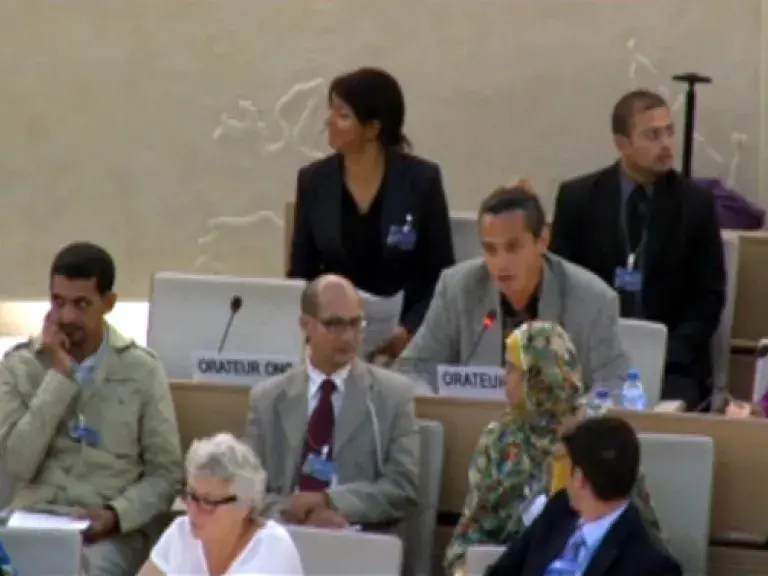
Rapa Nui leader, Santi Hitorangi, addressed the UN Human Rights Council on Sept. 18, 2015, in Geneva, seeking international support for the Rapa Nui’s right of self-determination and decolonization from Chile.
“We, the Rapa Nui people, continue to fight for our right of self-determination, for protection and management of the Moai, our sacred burial sites, for regulation of immigration to our island, and the decolonization of our territory,” stated Santi Hitorangi, member of the Hitorangi Clan.
Recently, Chilean police arrested and detained four Rapa Nui Parliament leaders on political grounds, ordered the closure of the Rapa Nui Parliament, and carried out unlawful searches of the Parliament offices.
“The arrests and detention of prominent Rapa Nui leaders are repressive measures aimed at reversing the control that the Rapa Nui Parliament has taken over their burial sites and sacred sites,” said Robert T. Coulter, executive director of the Indian Law Resource Center, which is helping the Rapa Nui bring the issue to the attention of the international human rights community.
Because of the arrests and the threat of further repressive actions, the Rapa Nui Parliament is also seeking protective measures from the Inter-American Commission on Human Rights to protect their right to life and humane treatment.
The island of Rapa Nui, commonly known as Easter Island, is in the southeastern Pacific Ocean and is considered a special territory of Chile, annexed in 1933 without the consent of the Rapa Nui Nation. Most of the 36 Rapa Nui clans have been engaged in a collective effort to recover their ancestral lands, protect sacred sites, and exercise their right of self-determination.
In 2010, protests by the Rapa Nui people against Chile’s disregard for the clans’ land rights, poor management of their sacred sites, and lack of control over immigration to the island led to violent clashes with police leaving several Rapa Nui people injured after being shot with pellets and beaten with rifles. The Indian Law Resource Center helped the Rapa Nui petition the Inter-American Commission on Human Rights, which filed a formal request with the government of Chile to protect the human rights of the Rapa Nui people. As a result, the Chilean government agreed to the Commission’s request and entered negotiations with the Rapa Nui Parliament on these and related matters. Negotiations broke down on March 25, 2015 due to the Chilean government’s inflexibility. On March 26, the Rapa Nui Parliament assumed management of their lands and resources to protect and preserve their sacred sites and cultural heritage.
“Chile’s recent actions violate the human rights and political freedoms of the Rapa Nui people and threaten to destroy us,” said Hitorangi.
